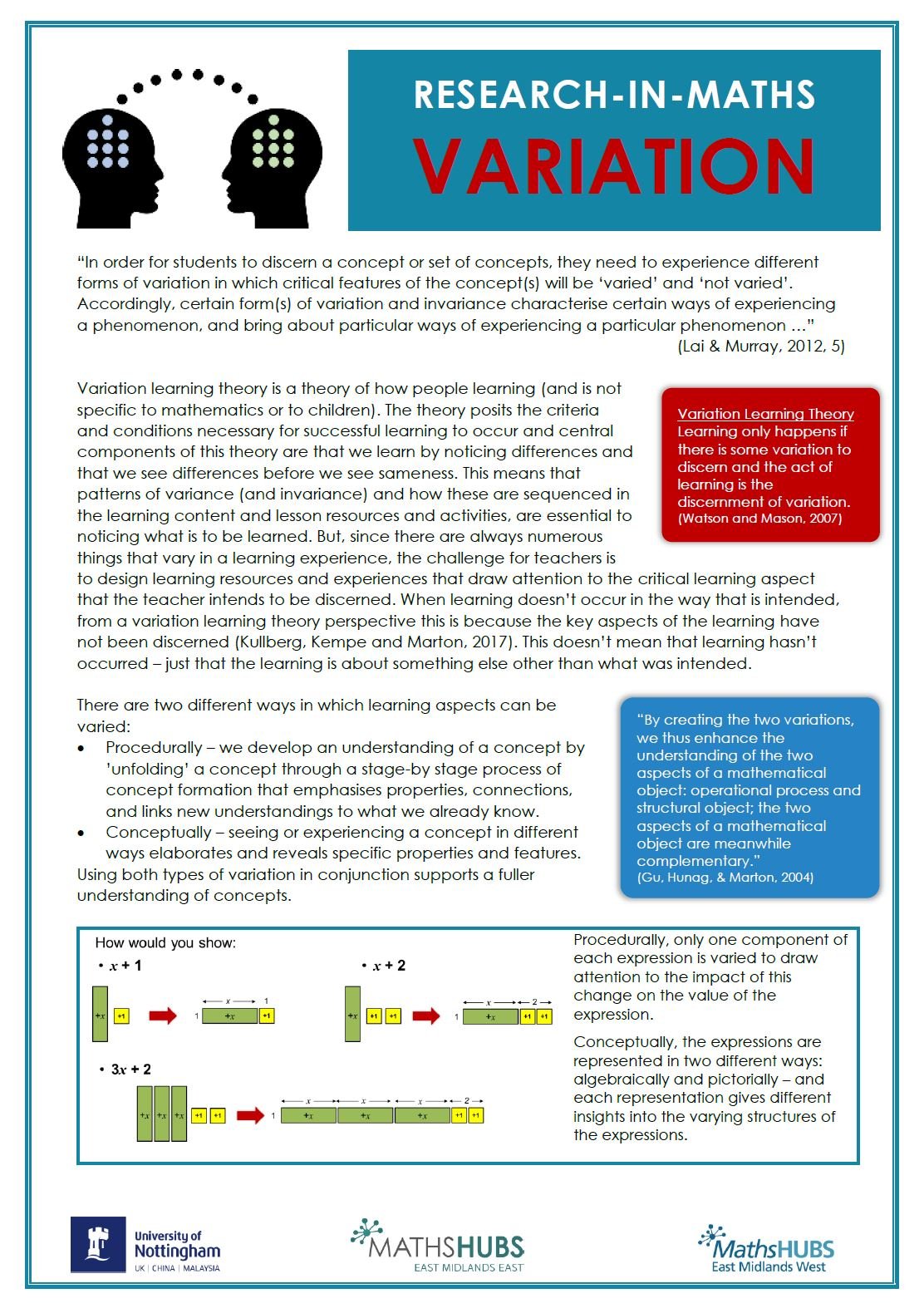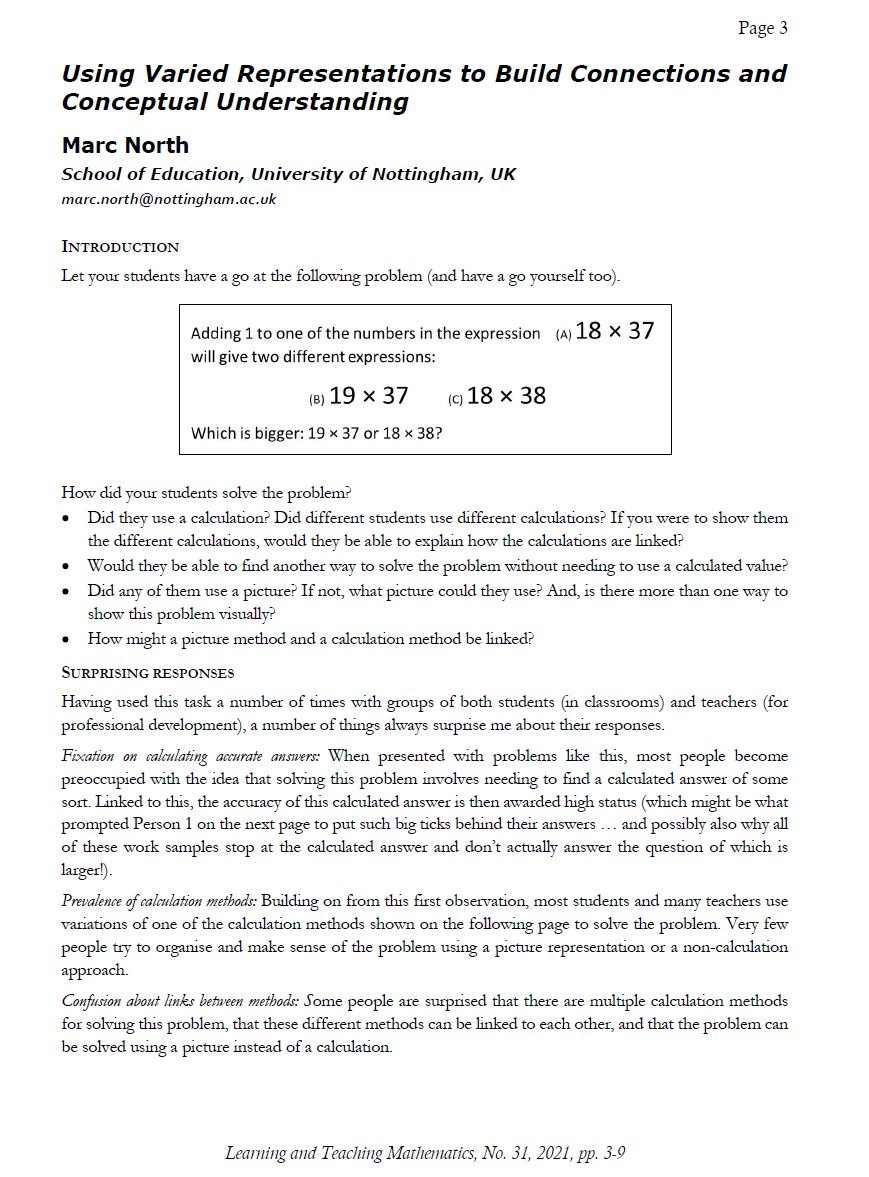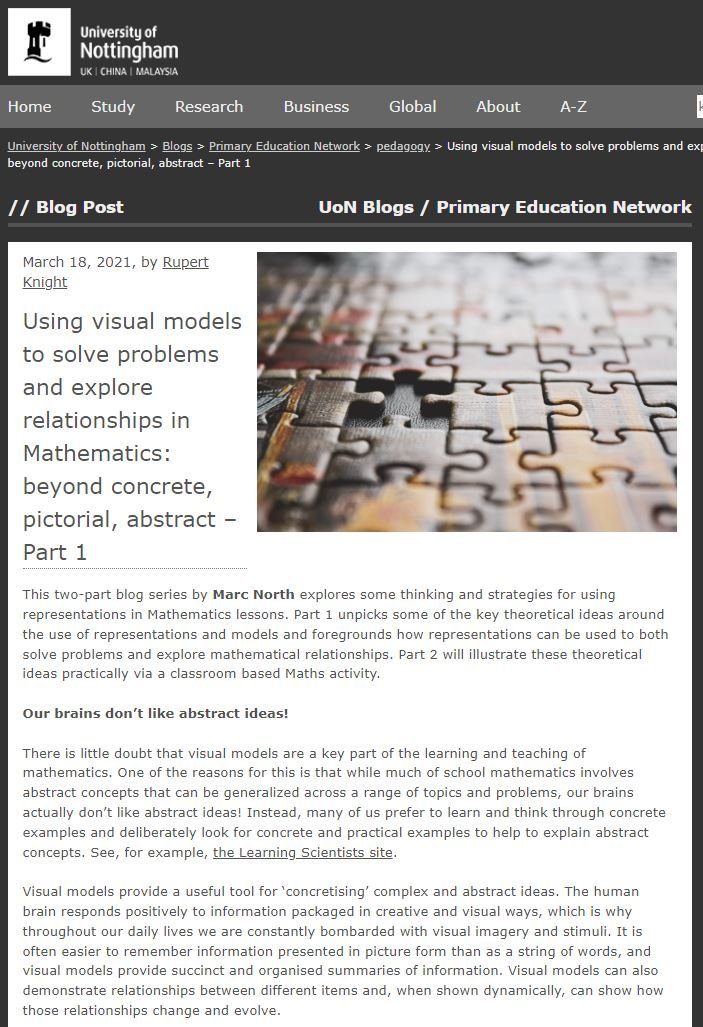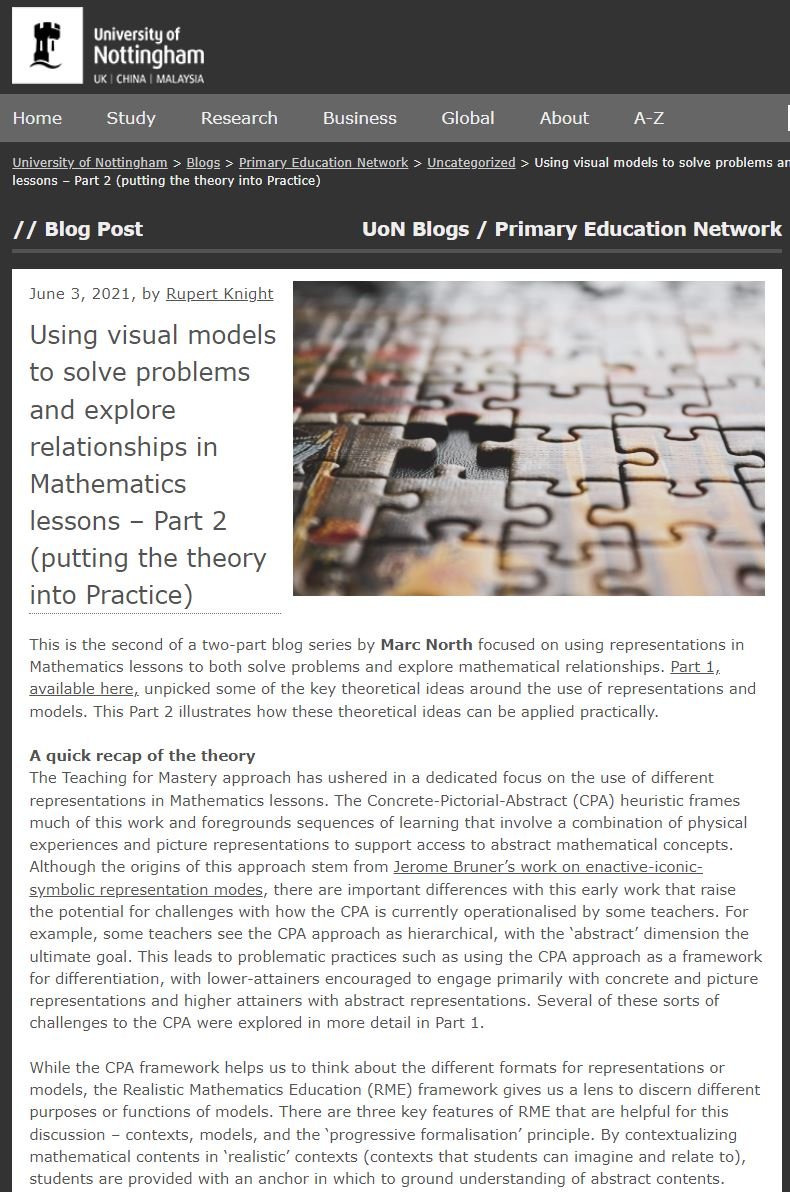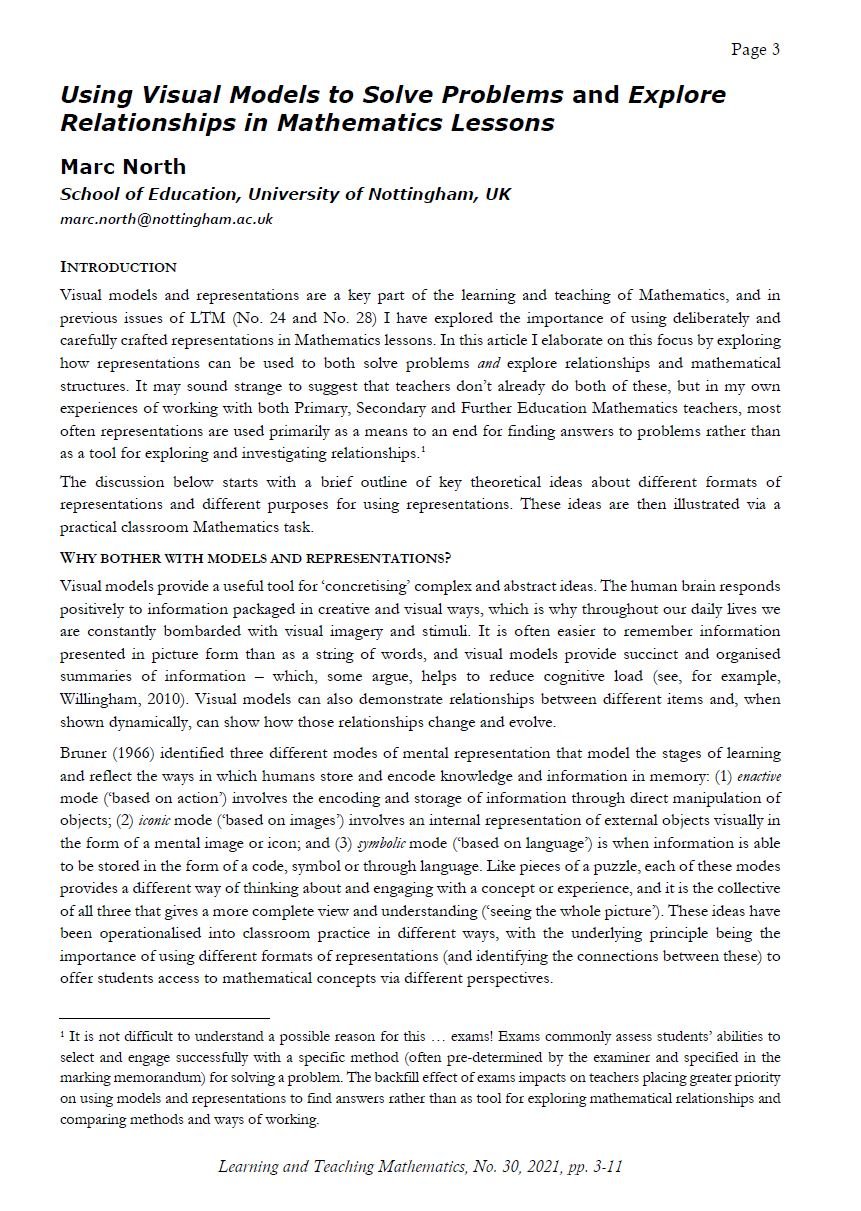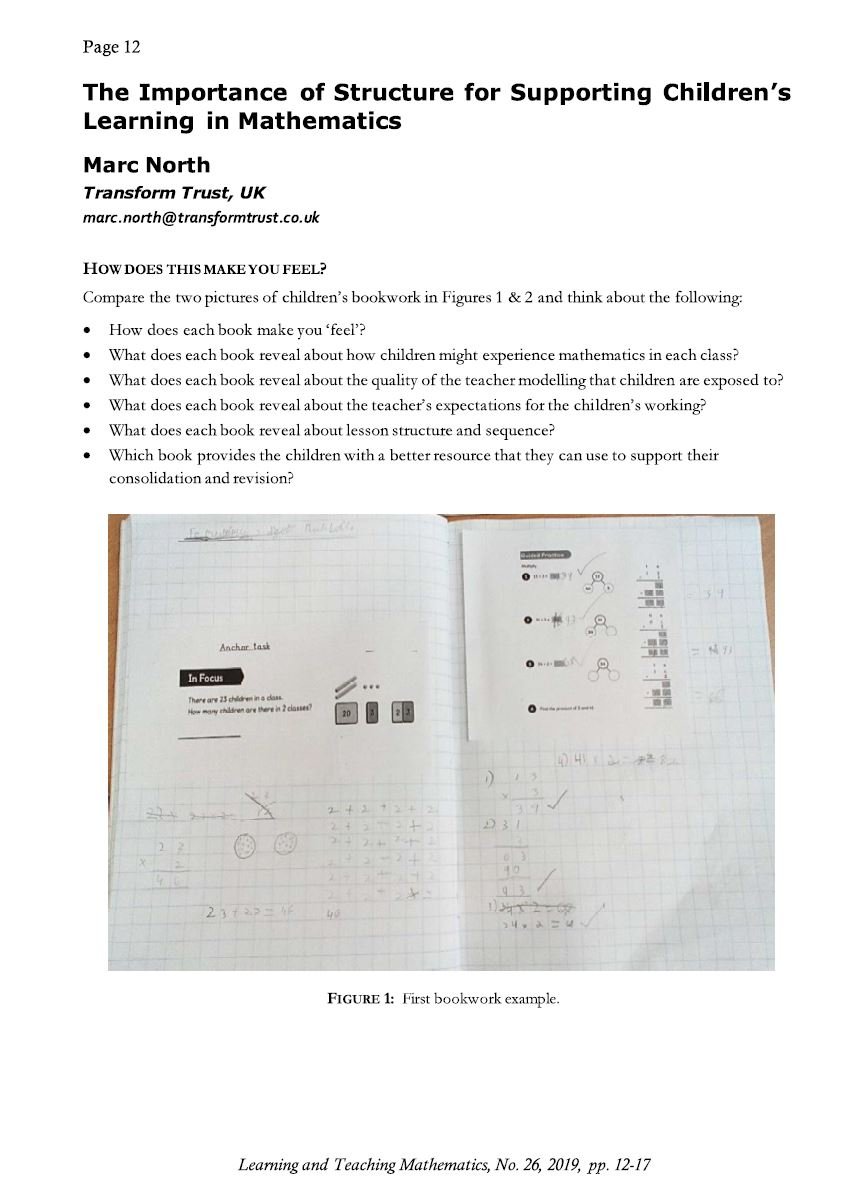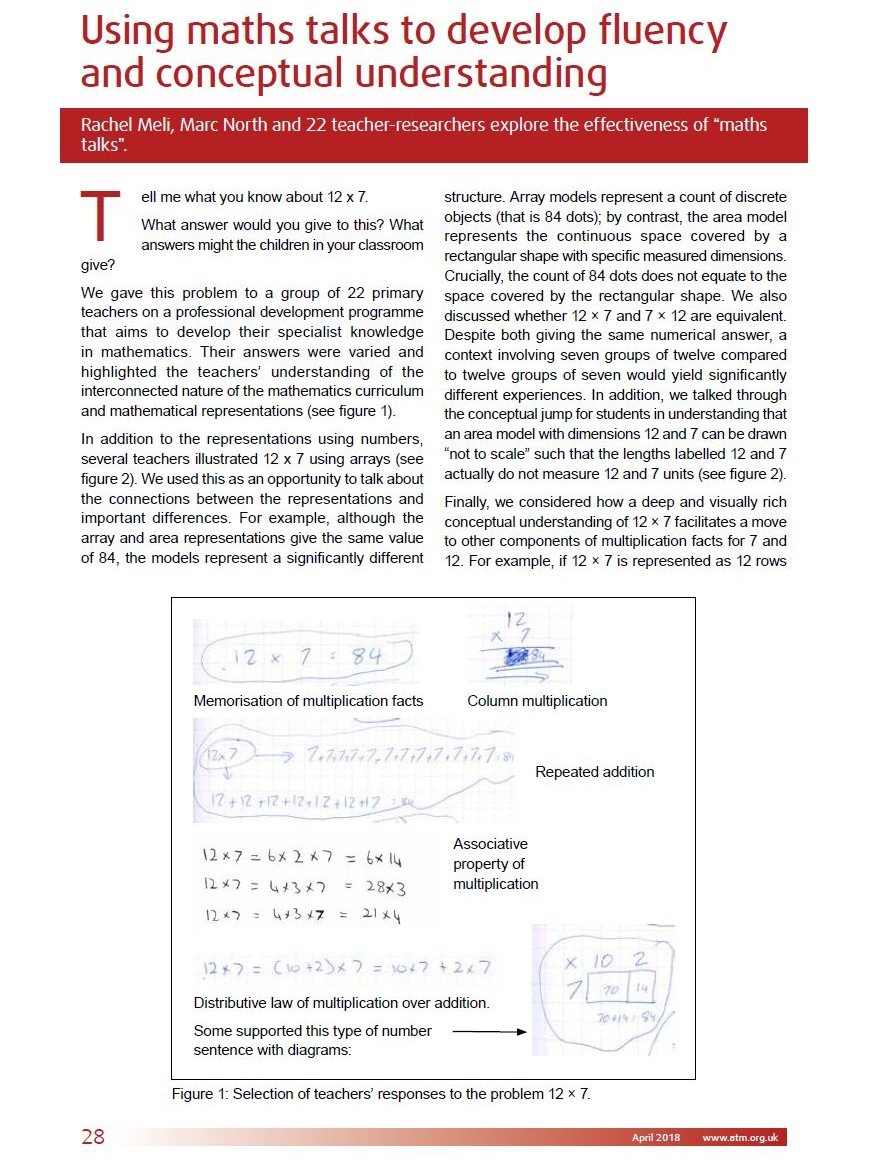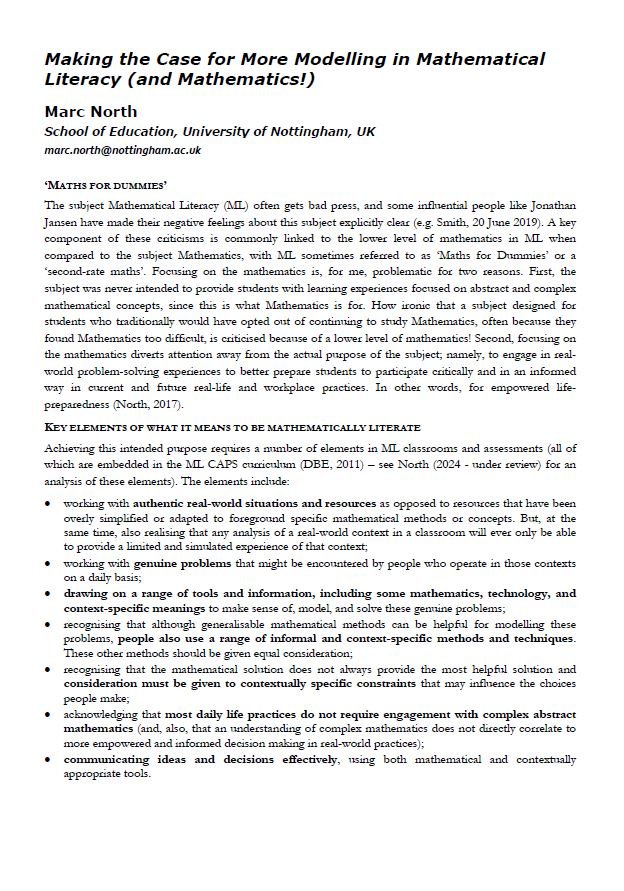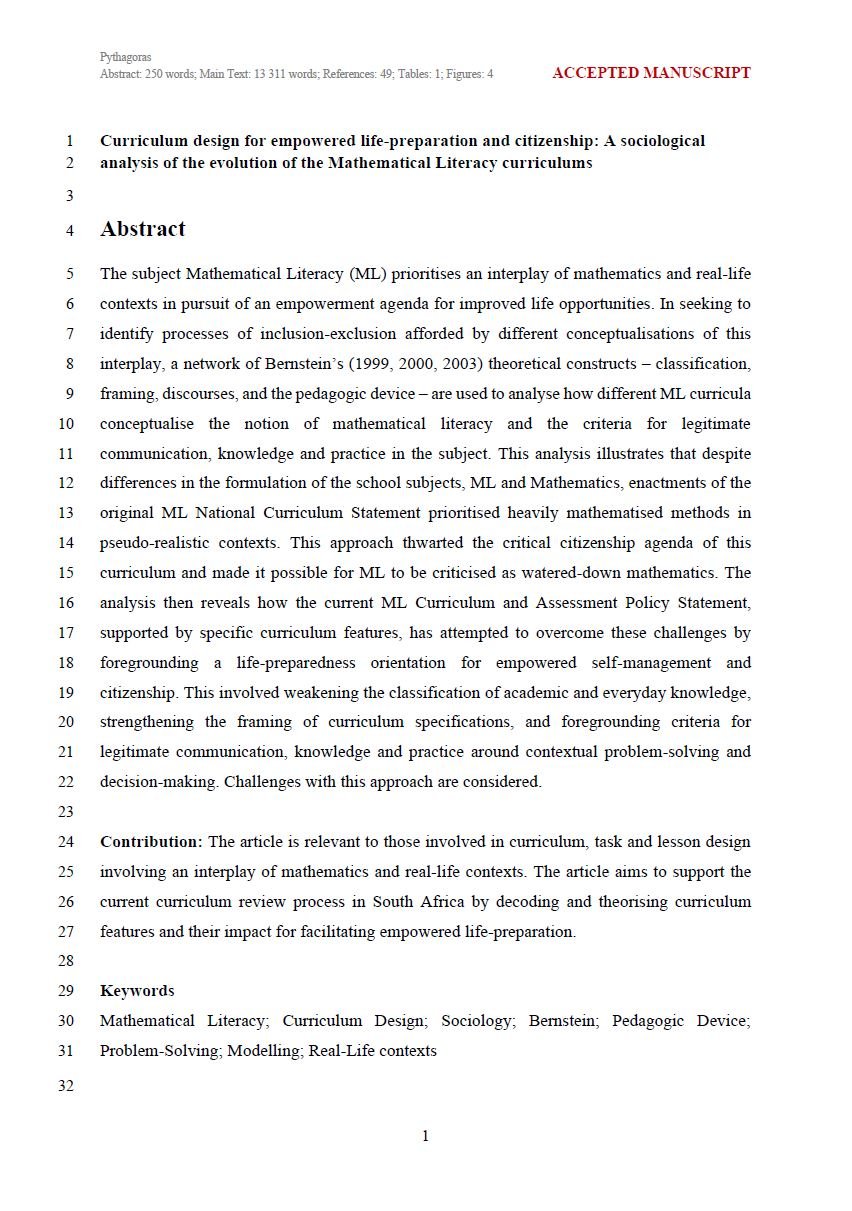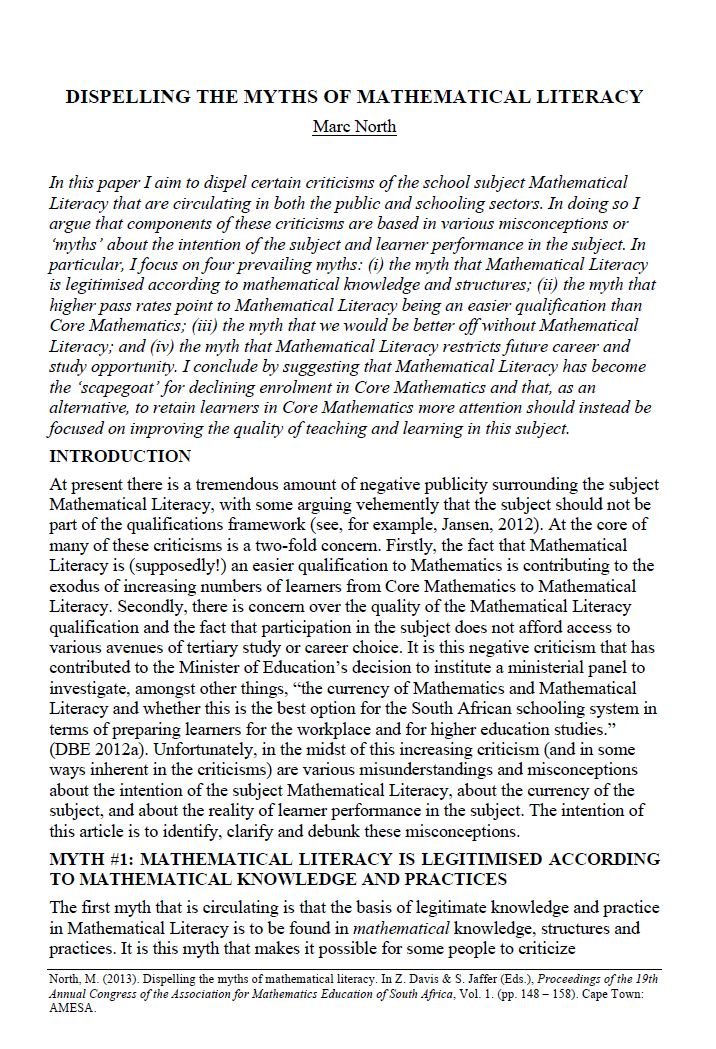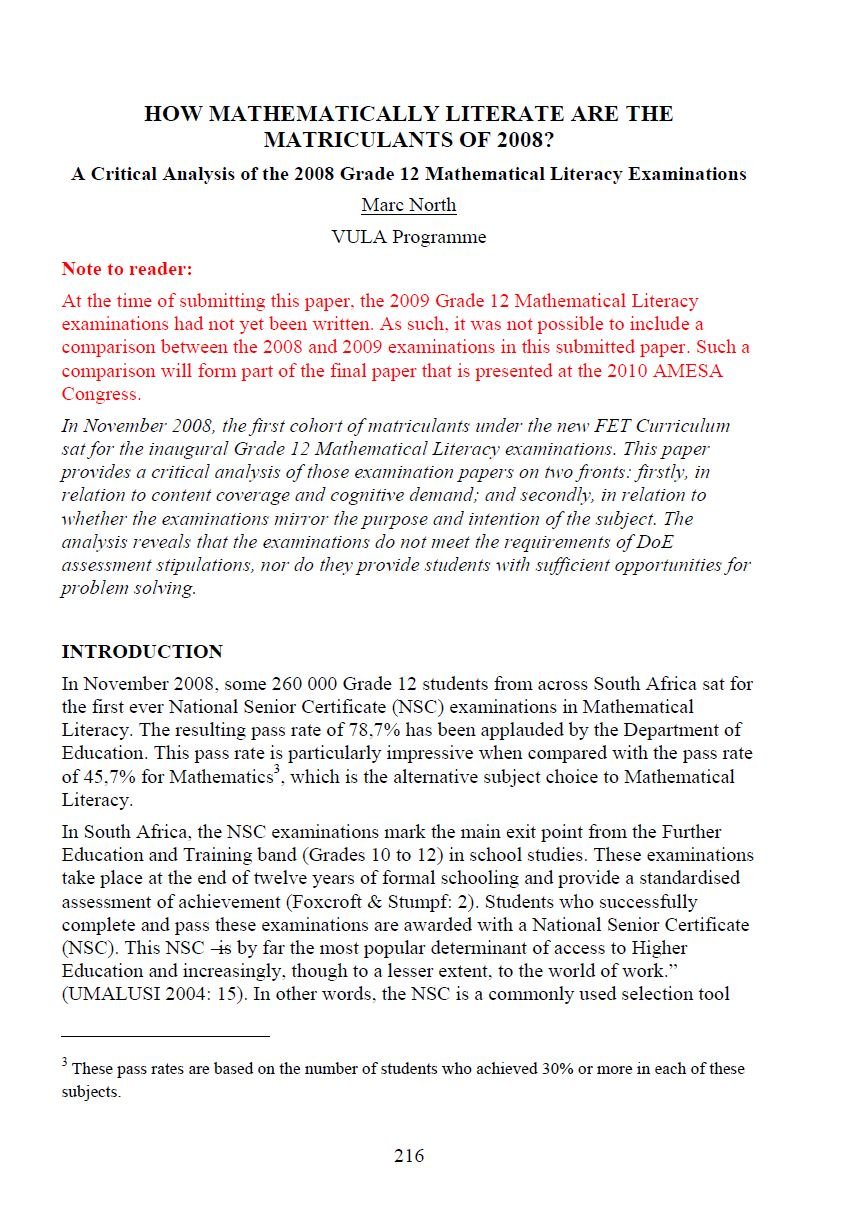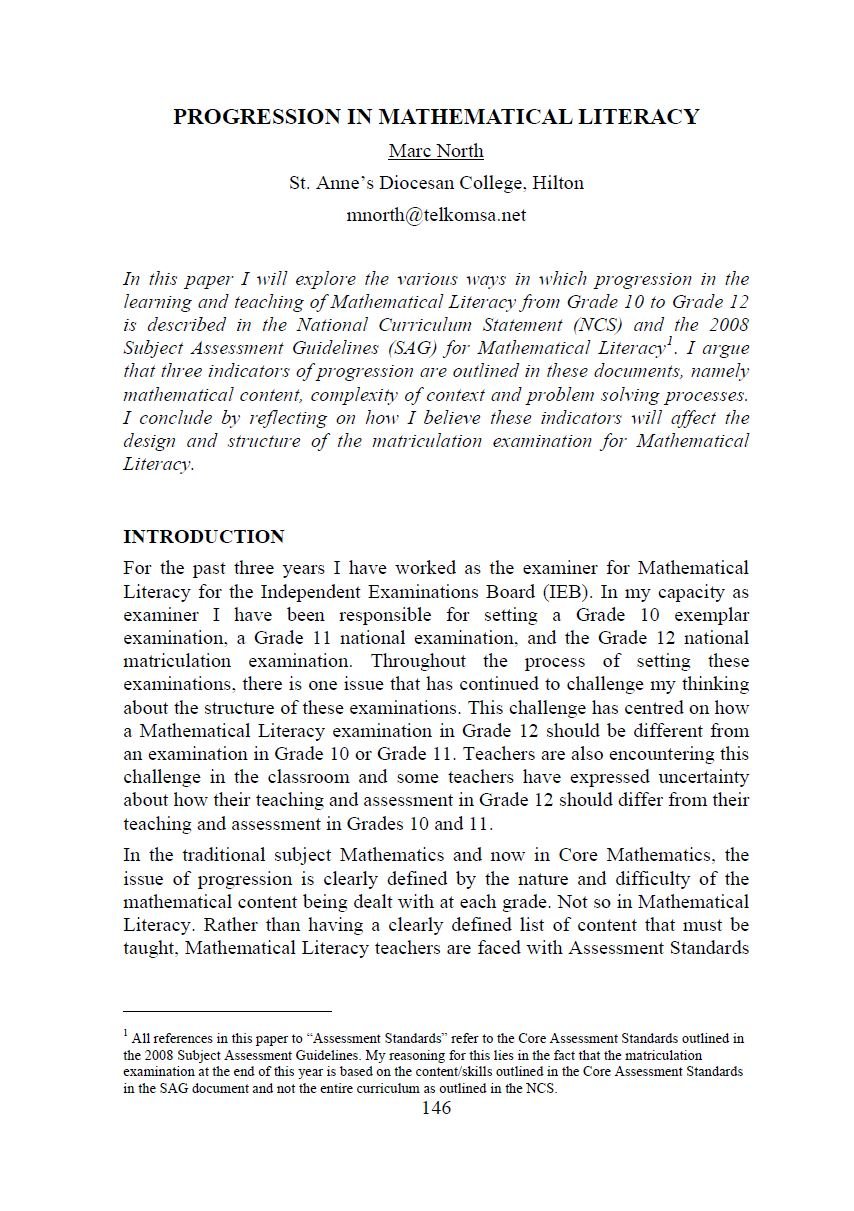Research and Publications
The articles below explore a range of topics about teaching and learning in mathematics. Topics include specific teaching and learning strategies, research on how students learn, and some ideas about what it means to be mathematically literate.
Manipulatives, Representations and Contexts
-
Research-in-Maths Summary: Contexts and Representations
This resource provides a summary of some key research ideas and challenges about using contexts and representations in mathematics lessons.
-
Research-in-Maths Summary: Variation
This resource provides a summary of key research ideas about ‘Variation Learnitg Theory’ and explores how this approach can be used to focus students’ attention on a specific learning focus in a lesson.
-
Varying levels of abstraction in pictorial representations
This article considers why it is important to plan carefully for how representations are sequenced in a learning experience (rather than just using lots of different representations).
[Source: North, M. (2017). Varying levels of abstraction in pictorial representations. Mathematics Teaching, 257, 17-21]
-
Using varied representations to build connections and conceptual understanding
This article explores how different but connected representations can be used to help students see understand mathematical relationships and structures.
[Source: North, M. (2021). Using Varied Representations to Build Connections and Conceptual Understanding. Learning and Teaching Mathematics, 31, 3-9]
-
Which Picture and Why? Being Deliberate and Explicit when Using Representations
This article explores the importance of making careful and deliberate choices about the representations we use to show concepts.
[Source: North, M. (2018). Which Picture and Why? Being Deliberate and Explicit when Using Representations. Learning and Teaching Mathematics, 24, 3-8]
-
Bars, bars and more bars
This article explores the versatility of a carefully chosen representation - such as a bar model - for exploring different mathematics relationships.
[Source: North, M. (2017). Bars, bars, and more bars. Learning and Teaching Mathematics, 22, 3-7]
-
‘If it’s tricky, draw a piccy!’ (PART 1)
This article is the first of two articles that explore how carefully chosen representations can support deeper conceptual understanding.
[Source: North, M., Joubert, M., & Dalby, D. (2019). ‘If it’s tricky, draw a piccy!’ Deliberate and careful use of representations to support deeper conceptual understanding of abstract concepts (Part 1). Primary Mathematics, 24(3), 24-27]
-
‘If it’s tricky, draw a piccy!’ (PART 2)
This article is the second of two articles that explores how carefully chosen representations can support deeper conceptual understanding.
[Source: North, M., Joubert, M., & Dalby, D. (2021). ‘If it’s tricky, draw a piccy!’ Deliberate and careful use of representations to support deeper conceptual understanding of abstract concepts (Part 2). Primary Mathematics, 25(22-26)]
-
Beyond concrete, pictorial, and abstract – Part 1
This two-part blog series explores some thinking and strategies for using representations in Mathematics lessons. This Part 1 focuses on key theoretical ideas about Bruner’s work on Modes of Representation and the Realistic Mathematics concept of ‘progressive formalisation of models’.
-
Beyond concrete, pictorial and abstract - Part 2
This is the second of a two-part blog series focused on using representations in Mathematics lessons. This Part 2 illustrates how the theoretical ideas discussed in Part 1 can be applied practically.
-
Using visual models to solve problems and explore relationships
This article explores how representations can be used to not only solve problems but also to model and explore relationships.
[Source: North, M. (2021). Using Visual Models to Solve Problems and Explore Relationships in Mathematics Lessons. Learning and Teaching Mathematics, 30, 3-11]
-
Algebra with algebra tiles: What's the point?
This article explores the power of manipulatives for lowering the abstractness of concepts, hereby making the concepts more accessible and easier to visualise.
[Source: North, M. (2023). Algebra with Algebra Tiles - What's the point? Mathematics Teaching, 288, 6-11]
-
Understanding through contexts! Using realistic contexts to reveal mathematical structures
This article explores how realistic contexts can be incredibly helpful for grounding abstract concepts and for guiding student’s thinking about mathematical structures.
[Source: North, M. (2023). Understanding through contexts! Using realistic contexts to reveal mathematical structures. Primary Mathematics, 25(1), 3-6]
Memory, Learning and Cognition
-
Strategies for supporting working memory and cognitive overload in mathematics
This article explores a number of strategies for reducing emphasis on memorisation in mathematics lessons, hereby supporting working memory and lowering cognitive load.
[Source: North, M. (2020). Strategies for Supporting Working Memory and Cognitive Overload in Mathematics Mathematics Teaching, 274, 9-13]
-
'Our brains really don't like abstract ideas!'
This article uses cognitive science principles about how we learn to explore how and why representations and manipultives can reduce cognitive load.
[Source: North, M. (2020). ‘Our Brains Really Don’t Like Abstract Ideas!’ Using Representations Deliberately and Carefully to Help Students Access Abstract Mathematics. Learning and Teaching Mathematics, 28, 3-7]
-
The importance of structure for supporting children's learning in mathematics
This article explores working memory and executive function skills and argues that structure is essential for supporting students with an under-developed working memory.
[Source: North, M. (2019). The Importance of Structure for Supporting Children’s Learning in Mathematics. Learning and Teaching Mathematics, 26, 12-17]
-
Developing children's mathematical learning by supporting their Executive Function skills
This article explores how we can develop student’s mathematical learning by using specific strategies to support their central executive functon skills.
[Source: North, M. (2019). 'Be deliberate, be explicit': Developing children's mathematical learning by supporting their Executive Function skills. Primary Mathematics, 23(3), 17-22]
Teacher Expertise and Professional Learning
-
Research-in-Maths Summary: Mixed Attainment Teaching
This resource summarises key ideas and strategies about using a mixed attainment classroom organisation approach in mathematics lessons. A mixed attainment approach is when students are not seperated into sets or attainment groups and, rather, are all taught .together.
-
Trusting the Wisdom of Teachers
This article explores the importance of teacher using their professional judgements to cater learning experiences to student’s needs.
[Source: North, M. (2022). Trusting the wisdom of teachers. Mathematics Teaching, 281, 13-18]
-
The problem with rigidly sticking to ‘my-turn, our-turn, your-turn’
This article explores the importance of flexibility in teaching and argues against simply following a fixed series of steps.
[Source: North, M. (2024). The problem with rigidly sticking to ‘My-turn, Our-turn, Your-turn’. Mathematics Teaching, 290, 30-32]
-
Using maths talks to develop fluency and conceptual understanding
This article explores how carefully constructed discussions can help students to develop deeper understanding.
[Source: North, M., & Meli, R. (2018). Using Maths Talks to Develop Fluency and Conceptual Understanding. Mathematics Teaching, 261, 28-31
-
Making Every Person Count in Maths A Framework of Professional Learning and Leadership Development
This article is more academic and discusses some of the key elements needed for successful large-scale professional development in mathematics teaching and learning.
[Source: North, M., & Heesom, S. (2022). Making Every Person Count in Maths: A framework of professional learning and leadership development for whole-school improvements in Mathematics. Educational Designer, 4(15)]
Modelling and Real-Life Applications
-
Making the case for more modelling in Mathematical Literacy
This article explores how modelling can be a useful and powerful tool for solving real-world problems and is an essential characteristics of a mathematically literate individual.
[Source: North, M. (2024 - in review). Making the case for more modelling in Mathematical Literacy. Learning and Teaching Mathematics.
-
Making the case for more modelling in Mathematics
This article argues that if mathematics is made compulsory for all students to age 18, then a different types of mathematics should be offered - one that focuses on practicall and relevant real-world applications.
[Source: North, M. (2023). Making a case for modelling in Mathematics. Mathematics in School, 54(4), 2-6]
Mathematical Literacy, Quantitative Literacy and Numeracy
-
Problematising current forms of legitimised participation in the examination papers for Mathematical Literacy
This is a more academc article that explores challenges with the way in which exam questions in a subject about real-life applications oversimplify the real-life contexts and problems and make them too mathematics.
[Source: North, M., & Christiansen, I. M. (2015). Problematising current forms of legitimised participation in the examination papers for Mathematical Literacy. Pythagoras, 36(1). http://dx.doi.org/10.4102/pythagoras.v36i1.285]
-
In Pursuit of an Orientation for Life-preparation: A Case Study of the Subject Mathematical Literacy in South Africa
This is a more academic article that explores what is means to be mathematically literate and the types of curriculum and task design features that will facilitate mathematically literate behaviour for empowered life-preperation.
[Source: North, M. (2017). Towards a life-preparedness orientation: the case of Mathematical Literacy in South Africa. African Journal of Research in Mathematics, Science and Technology Education, 21(3), 234-244. https://doi.org/10.1080/18117295.2017.1364045] *Unfortunately, this article is not open-access so I can’t provide a pdf link.
-
Curriculum design for empowered life-preparation and citizenship: A sociological analysis of the evolution of the Mathematical Literacy curriculums
This is an academic article that offers a theoretical analysis of how Mathematical Literacy and Mathematics are different, and also how and why the two ML curriculum documents priritise different agendas. This is the pre-publication final accepted draft of this paper and the final paper is currently in production.
[Source: North, M. (2024). Curriculum design for empowered life-preparation and citizenship: A sociological 1 analysis of the evolution of the Mathematical Literacy curriculums. Pythagoras]
-
The basis of legitimisation of Mathematical Literacy in South Africa
My PhD research and dissertation. The main focus is describing criteria for what it means to be mathematically literate, particularly when this behaviour involved making sense of real-world problem situations.
-
Mathematical Literacy curriculum design for empowered critial citizenship
This article explores curriculum design features that foreground an agenda for critical citizenship and life-preparation.
[Source: This paper will be presented at the 15th International Congress on Mathematics Education in Sydney in July 2024]
-
Textbook and task design for life-preparedness and critical citizenship: the challenge with integrating mathematics and contexts
This article explores textbook design features for the subject Mathematical Literacy that foreground an agenda for critical citizenship and life-preparation.
[Source: This paper will be presented at the 15th International Congress on Mathematics Education in Sydney in July 2024]
-
Dispelling the myths of Mathematical Literacy
This is a conference paper that explores different misunderstanding and misconceptions about the subject Mathematical Literacy in South Africa
[Source: North, M. (2013). Dispelling the myths of mathematical literacy. In Z. Davis & S. Jaffer (Eds.), Proceedings of the 19th Annual Congress of the Association for Mathematics Education of South Africa, Vol. 1. (pp. 148 – 158). Cape Town: AMESA.]
-
How mathematically literate are the matriculants of 2008
This article discusses and problematises aspects of the 2008 Mathematical Literacy examination papers and student performance in those exams.
[Source: North, M. (2010). How Mathematically Literate are the Matriculants of 2008? A Critical Review of the 2008 Grade 12 Mathematical Literacy Examinations. In M. d. Villiers (Ed.), Proceedings of the 16th Annual Congress of the Association for Mathematics Education of South Africa (AMESA) (Vol 1). 28 March – 1 April 2010, Durban. pp. 216-230. https://www.amesa.org.za/AMESA2010/Volume1.pdf]
-
Progression in Mathematical Literacy
This article compares progression in ML with Mathematics. For the latter, progression is in relation to increasing complex content. For ML, progression is linked instead to increasing complexity and familiarity of contexts and problem-solving experiences.
[Source: North, M. (2008). Progression in Mathematical Literacy. In H. H. Boshoff, V. G. Govender, & L. Heymans (Eds.), Proceedings of the 14th Annual Congress of the Association for Mathematics Education of South Africa (AMESA) (Vol 1). Port Elizabeth: Nelson Mandela Metropolitan University, pp. 146-156]


